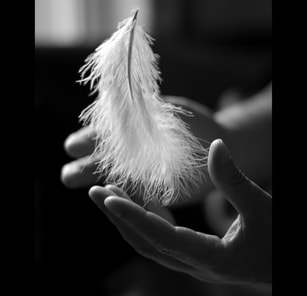 GRIEF GRIEF GRIEF GRIEF GRIEF GRIEF GRIEF... That word beats into my brain day in day out; it pounds on my heart and has ripped out any normalcy that may have existed in my life. I can taut the origin or definition of the word 'grief' but what interests me more is that it is considered a noun; referring to a person, place, thing or idea. This past year grief has been a person, has been a place, has been a thing and prior to January 1st, 2017 was an idea I dreaded to experience but knew was inevitable. Leading up to the first anniversary of Sophia's passing, the anticipation nearly killed me. My chest hurt; piercing, stabbing, searing pain right through to my back...I was sure my heart was really going to break and I would drift off into the same unknown ether as Sophia. I found myself longing to be back in the room she passed; and honoured her passing sitting in a comfy chair at Canuck Place Children's Hospice. Walking back into that space seeing the same nurse who was on that day, Roxy, the cook in the kitchen, the same counsellor tending to my needs, it was deja vu. The only thing missing was Sophia...and while we lit a candle in the window at 8:45am, the ache of missing her skin, her smell, her laughter, bore into my throat and I sobbed missing my daughter. This past year has been a life lesson, for sure. People showed up when I least expected it and those I expected, just didn't show, still don't show. I allowed myself to be bullied, allowed others to dictate how this year was going to unfold, and found myself catering to everyone else's needs...only to be told I am selfish, manipulative, oh and my favourite...'get over it, move on' from people who never had the same relationship I had with Sophia. From people who over the course of Sophia's life, didn't show up or really understand the enormity of what caring for her entailed. On the contrary, I also experienced the extraordinary compassion and love of people. The group of women who showed up are selfless, remain unintimidated by my sorrow, and have allowed their own vulnerability to marry my own creating a community of strength, resilience, support, laughter and a lot of wine... My best friends became my family when we needed each other most. And I found love...true, honest, deep, love from someone who has not left my side despite my pushing, despite my crazy, our crazy My heart beats deeper because of who they are and the unconditional love and adoration that has become the foundation of our relationship; decades in the making. So this year of grief has passed. Another one to follow, by another, and another, and another. This is the journey of a bereft parent. Grief doesn't end and gratefully our understanding of grief is changing. The concept of living grief begins well before our loved one passes and the experience becomes a part of our life for ever more. The day of Sophia's celebration of life Harris Barn become covered in bald eagles; dozens and dozens of eagles. When an eagle appears you are on notice to be courageous and stretch your limits. Sophia was the epitome of courage and stretching her limits. She believed she could be capable of anything. This next year I can only hope that living grief continues to shape my life and those in it. Sophia was one of a kind and loved deeply. She found joy amid suffering, laughter at every crazy thing, she loved living and like the eagle, who soars higher than any other bird, Sophia soared higher than anyone I have ever known. I would be doing her an injustice if I let the grief and loss wash away my own life, or the life of those who have endured one of the hardest years I have ever experienced. I know it is going to continue being a challenge. I know that people will come and go, disappoint and surprise. But the depth of love that Sophia shared endures...in those who love her and in those Loved Sophia. Consider this an invitation to come join me on the journey...
1 Comment
The one year anniversary of my daughter's death is fast approaching. Stepping into this holiday season the memories of those last few weeks with Sophia barrel into every waking moment. Grief comes in waves but the memories of last year have hit me like a sack of rocks...I feel battered at best. And the word 'grief' does not hold enough volume to explain this experience enough.
Quite often I'm found staring out in front of me; my eyes darting in hysteria as my mind and heart remember those last weeks. The images flash through my mind and I become drowned in the sorrow of suffering from losing a child, remembering her suffering all to well, battling something we could never win. Throughout Sophia's life, I would be asked 'had I known Sophia was going to be so sick and be born with a rare disorder would I have kept her', meaning would I have aborted my pregnancy. Before this time last year, I would have said a resounding YES. Of course I would have still had her, what were they thinking? January 1st, will be a year since she passed and I am not so sure anymore. Not just to alleviate her suffering but, perhaps, to selfishly, avoid my own. I have been listening to Sam Harris's podcast, Waking Up and he recently had David Benatar, a professor of philosophy, on to discuss his advocacy of antinatalism based on David's book Better Never To Have Been: The Harm of Coming into Existence. Most of us, as an existing person, understand good things are good...and bad things are bad. David argues that the bad is worse than the 'good is good'. But if that person never existed, the necessary absence of the good wouldn't be bad because there would be no one there to be deprived; thus his antinatalist position. During the podcast, I began to consider that Sophia's non existence would have alleviated her suffering. I then shifted and thought, then my non existence would have alleviated her suffering, too...as would my mother's non existence, her mother's non existence, etc, etc. Like Benatar, I was beginning to believe that existing is harmful. My existence was harmful to Sophia...I birthed her, she suffered. My mother's existence was harmful to Sophia because she birthed me, Sophia suffered. Benatar's philosophy is not lost on me at all. I get it...there is undoubtably harm coming into existence. We will all suffer...to some degree, at some point in our existence, or we will bore suffering on those around us. However logical that may be, I find his chain of reasoning counterintuitive on at least one significant point that, as Harris argues, imperils Benatar's antinatalist thesis. Benatar posits that bads are not bad because there's no one to suffer them, yet never-to-be-experienced good he doesn't count as a loss because no one's there to not experience them. How do I weigh the existence of Sophia's suffering against the good she experienced? How do I weigh all the joy she brought me with the suffering that I am experiencing now, after her death? How do we measure the depth of love that we have for someone and is that, like many believe, in direct relation to the degree of grief we endure once they are gone? Our consciousness as humans has evolved so much that did you know we are thought to be the only species aware that we are destined to die? So is that a good enough reason to not exist? Knowing Sophia was going to die, should I have not allowed her to exist at all? As the anniversary of Sophia's death ebbs closer and closer...my heart aches. The longing, at times, is unbearable. The last three weeks of Sophia's life were filled with her screams, her desire to 'go home', the gut wrenching decisions to keep her comfortable, wiping away the tears drawing down her cheeks as she, herself, struggled with her body shutting down, with the human consciousness aware that we are destined to die; Sophia was destined to die. I am destined to die...and I am suffering before that day inevitably comes because I exist. I am suffering because Sophia existed. Last year, I would have said it was worth it...having Sophia, being her mother for 16 years was worth the suffering. But coming up to this one year anniversary, I am leaning the other way. I don't think anything or anyone could convince me that the suffering Sophia endured those last few weeks is worth existing for. Maybe this makes me incredibly pessimistic, or maybe this is how the depth of my grief translates. I don't know... Happy Anniversary Sophia...I will be where you took your last breathe; sitting, being, crying in the space you once occupied...and still occupy in so many ways. I love you to the moon and back... When I started out on this journey, just over 17 years ago, I understood that at some point it would come to an end the moment Sophia took her last breathe. I was focused on ‘living’ grief through every moment I had Sophia next to me. With each loss, the grief dug deeper and deeper, and my fear had me crawling on my hands and knees to the edge not wanting to look over; down into what I thought was a crevice I’d never be able to pull myself out of.
Sixteen and a half years with Sophia did NOT prepare me for living after she was gone, is gone. Living grief has taken on a whole new meaning, a whole new version of profound loss that no matter how long we have our children here for, can never prepare you for when they pass away. I thought that like B.C and A.D, there would be a ‘before’ and ‘after’ for living grief. I was wrong. Living grief, with all its ups and downs, is perpetual. There is no before or after Sophia. Sophia ‘is’…and my life with her ‘is’. Living grief is no different. It ‘is’. The profound journey of ongoing loss doesn’t end. It shifts, but it doesn’t and hasn’t ended. Each day that passes without Sophia is its own milestone. I got through the first month, the celebration of her life, the first Easter, Mother’s Day, and my first birthday without her home made card or her arms hugging me tight. Then came her birthday…it ‘would have’ becoming a new term in my vocabulary. Most days I don’t recognize my life. I’m in a new home, I’ve a new job, my world is smaller but so much bigger. The boys are off on their own, beginning their own wondrous life. And then there are the days I feel I can’t possibly go on…my body literally hurts from the pain of losing one of the most extraordinary little humans I have ever had the privilege of loving. There are some people who just don’t understand the enormity of what it is to lose your child. They are ignorant, naïve and lack the sense of compassion that embodies what bereft parents like me need, regardless of how much time has passed. Amid it all denial still remains the sweet spot. I see her every day, I feel her around me with each beating of my heart; a song, a sound…and she is right here next to me. Living grief…the profound journey of ongoing loss continues… A great statement regarding palliative care for children from the International Palliative Care Community following the death of Charlie Gard resonates so deeply personal to me, as a newly bereft parent. I struggled throughout Sophia's life in making decisions with her regarding quality of life. More often than not, we were met with push back from clinical teams in the hospital setting, community practitioners and even some friends and family who felt exhausting all and any option for remedy was the best approach / best practice.
Sophia led the charge early on, in wanting a choice in decisions effecting her body. Canuck Place Children's Hospice and our community paediatrician supported Sophia and myself in making well informed and thought through decisions regarding any procedures, medications, treatments. The last three weeks of Sophia's life were so very difficult. Her body was failing her but her spirit and desire to live was epic. Sophia was upset and sad that her body was failing, tears streamed down her cheeks regularly. Yet, every time the doctors, nurses or I asked her if she wanted to be more awake or did she want us to intervene, she clearly said no. Her pain and discomfort were extreme and her body was relentlessly shutting down. The last twelve hours of Sophia's life were the most comfortable. She slipped quietly away... "Palliative care is life affirming and not about giving up, but about ensuring that the child can have the best quality of life within the realities of their condition." This is true for Sophia's entire journey and most importantly, during those last few weeks. Palliative care is LIFE AFFIRMING...and should be afforded to every child with a life limiting or life threatening condition. Loved Sophia ❤️❤️ Well, it’s a difficult thing to have to write a eulogy for your child. Where do you start? How do you end? How can you possibly sum up your beautiful child’s life in 8 minutes? Do you get up and read it yourself…or do you get someone else to because it’s a difficult thing.
But Sophia is my best friend and was my happy companion for 16 years, 4 months and 29 days. And they were the most extraordinary 16 years, 4 months and 29 days. And it is my honor to come up here today and be Sophia’s voice, to share my heart, to share our loss. I knew from the moment Sophia was born, much like with her brothers, that life would never be the same again. I realized just what an under statement that may have been when I found myself sitting in the back of an ambulance less than 24 hours after she was born…Sophia was on her side, in an isolette (like an incubator) with just a little diaper on…the paramedic and I sitting next to her. That entire ride to Neonatal ICU Sophia just looked at me…stared, with these big wide beautiful eyes. There was a wisdom in those eyes right from the beginning. Anyone who knew Sophia in her early years, may recall Sophia didn’t really talk much, she rarely cried even though we relentlessly poked her little toes and fingers, gave her shots in her legs, put tubes up her nose. She was so good, so patient, so enduring. Sophia, despite all her medical and physical hurdles, is and was a typical child and teen…and, yet, at the same time, she was so much more. For years, and even now that she has passed, people have come up to me and said how Sophia is a miracle, how she has surpassed everyone’s expectations, how she’s lived longer than anyone anticipated. The thing is, while Sophia may have outlived everyone else’s expectations…she didn’t outlive her own. She lived large, she lived boldly. She is courageous. She had big dreams and big goals of a life full of joy, full of laughter, full of music and full of people… Sophia loved people…early on she would sit contently in your lap, curl up in the croak of your arm, be plunked on the counter at the nurses’ station. She was so tiny that up until she was about 3 ½ I would carry her around in a little bunting bag but always facing out…never facing in because she loved people, and she longed to observe the world around her. She just wanted to be part of the action. It didn’t matter how she was feeling, whether she was in ICU, or a music concert, or at school, camp, home…she wanted to always be with people. As her health started to change this last year and she couldn’t go to school anymore, her iPad became her life line to the world, to people and those around her. For those of you who were Sophia’s Facebook friend…you know what I am talking about. Sophia liked everything on your Facebook feed. She loved Messenger and FaceTime. And it didn’t matter if you were working, in the car, at school…she would bombard you with calls and messages until you finally succumbed. I know her cousins that are here can certainly attest to that. Right, Kimmy? And my brother, Bill, who set a FaceTime date every evening with Sophia. Where she would end her night laughing and giggling at his antics. As Sophia became a teenager and as her health declined, she definitely became more discerning. She had a preference…young, pretty, female. I’m not sure how my brother fit into that, but she did make exceptions. And you knew when you were in, if you suddenly felt a little tickle on your leg, or under your arm. It was Sophia’s way of saying, ‘Hey, I think you’re cool, I want to be your friend’. But when you were in, you were in. Sophia loved you no matter what. You will notice the buttons that were handed out, and on the schedule for today…has, in Sophia’s own handwriting, Love Sophia. Every time Sophia posted to Facebook, or sent you a text, or message, or even in her communication via iPad with her nurses, she always signed ‘love sophia’. It started to get autocorrected to LOVED Sophia…so every time she signed off, the last words she said were LOVED SOPHIA. And it fits…loved Sophia. She loved large, she loved boldly, she loves courageously. Everyone here today has in some way, been touched by that love. Either as a volunteer, a clinician, a nurse, through school, as a peer, through her brothers, or through us as her family and friends. There are a lot of people here in this space, and Sophia shared her life and her love with each and every one of you. And while she lived large and lived boldly…the last few years, her world became smaller. Sophia’s body was being impacted in ways she did not like. And this past year, when she went blind her world became even smaller. But what kept her going, beyond sheer determination and stubbornness, was her ability to see and feel the joy in every day, in any moment, with whomever she was surrounded by. And it’s why the auto correct LOVED Sophia resonates…she was loved, she was joy. And everybody here today loved her and contributed to her joy. The last three weeks of Sophia’s life were difficult. There was not a lot of joy. But there was a lot of love. And even when she was screaming ‘I don’t want to be here”, “I’m done”, “I hate you” to those around her…she was loved, unconditionally, tenderly. And one of the most important and hardest things I’ve ever had to do as Sophia’s mum was help her let go. She held on because she loved, and in the end she was able let go because she was loved. We have all learned something through our touch point with Sophia. For myself, as her mum…as her caregiver, her companion, I have learned that despite the pain, despite the discomfort, despite the world changing around you or maybe your body failing…you love. And that love will turn into joy, into laughter, into courage. You will live large; you will love boldly… Sophia is my best friend and it is my privilege to love my beautiful daughter and to be loved by her. There isn't a moment that goes by that I don't miss her terribly, longingly. I am forever changed. Her remarkable legacy will continue…in me, in her brothers, in my brothers and sisters, her cousins…and in everyone here today, who Loved Sophia. Two weeks ago today, my beautiful daughter, Sophia, died. I have tried to come up with a more eloquent way of saying that…but I can’t because Sophia died. She didn’t just slip or pass away. The last three weeks of her life she struggled; she suffered both physical and emotionally with what was happening to her body. There were screams of wanting to go home, to leave her alone, and tears…lots and lots of tears.
And in the end she stopped breathing and died. It’s hard, it’s painful, it hurts like nothing I have ever experienced before. Why should I or anyone else sugar coat the reality of losing your child? My child. There are moments when I can barely breathe. There are moments when I desperately want to go and be with her… I’ve come to realize Living grief and living IN grief are two completely different journeys. I have reluctantly moved into the latter. In living grief, denial is the sweet spot. It is where we can push aside the medical issues, the disease of our loved one and live in the moment, be present, seek joy, and love love love every minute. In grief, denial is a fresh wound that refuses to heal. That keeps bubbling over, infected, oozing. Dropping me to my knees when I hear a certain song, keeping me on the brink of tears until I no longer have the strength or resolve to hold them back and have to simply stop and let the ache in my heart pour out of my eyes for what seems like an endless amount of time. Fourteen days, three hours to be exact…as I write this, Sophia died. There are moments when I forget. I think oh, I can go see her at Canuck Place or I can call them to check up on her. She is there for respite. Then it all comes flooding back, that she is gone. And all I am left with is her ‘things’ strewn across two homes, the last piece of clothing she wore in a zip-lock bag to preserve her smell along with a strand of hair I cut before they took her body away. Maria Konnikova (@mkoonikav) wrote an article in The New Yorker last spring How People Learn to Become Resilient. Maria often quotes Martin Seligman, the ‘father of positive psychology. In this article, she indicates that Seligman found training people to think of their situation ‘from permanent to impermanent (“I can change the situation, rather than assuming it’s fixed”) made them more psychologically successful and less prone to depression.” How do I do that in grief? I can’t bring Sophia back; her death is permanent. Where does the impermanence lie in the loss of a loved one? How do I learn to become resilient amid the pain and loss? Or, do I sit in the depression? Allow myself to weep, to process, to feel, to fall... Fourteen days, four hours, and forty-five minutes… "The cradle rocks above an abyss, and common sense tells us that our existence is but a brief crack of light between two eternities of darkness. Although the two are identical twins, man, as a rule, views the prenatal abyss with more calm than the one he is heading for (at some forty-five hundred heartbeats an hour). - Vladimir Nabokov, Speak, Memory
Sophia has ups and downs daily, sometimes hourly...she can barely catch her breath wrenching, choking on her own secretions, her body slowing down running to pause. Every one of her last breaths wrapping themselves around my heart, like a vice in my chest tightening, and tightening...my free flowing tears lubricating the sense of loss that grows with every moment closer. I can barely catch my breath in-between 'change'. All either one of us can do is breathe... I am a mother witnessing her child die. Labor, glorious labor…it’s three stages of agony with a beautiful outcome. Witnessing your child die is a cruel form of labor with an outcome no mother wants. It’s laborious in its truest, rarest, rawest form. The pain and agony shifting from uterine and cervix to chest and throat…the contractions becoming more intense the closer death seemingly gets. In child birth, we experience early labor, active labor and transition. Parenting a child with a life limiting illness we go from cradle, to bedside, to grave. I’m at bedside…vigil. The sunshine currently streaming through the windows creating a halo above Sophia’s head, teasing me with a heaven on earth I only wish we knew. Forty five hundred heartbeats an hour dropping to twenty seven hundred…fifteen breaths a minute dropping to eight, the cradle rocks… My stomach churns with worry, my mind races with uncertainty, my heart beats deep with anticipatory loss. We are in hospice, my beautiful daughter finding peace in a still unknown and unfinished journey…
C.S. Lewis in his A Grief Observed reveals that “No one ever told me that grief was so much like fear. I am not afraid, but the sensation is like being afraid. The same fluttering in the stomach, the same restlessness, the yawning. I keep swallowing.” I have been living in grief for so long, I naively thought I would be prepared for being with dying. But I’m not. And I am pulling on every resource I have to be present, to bear witness and remain an advocate for my daughter. I’m raw, vulnerable, tender in spots I never felt before; collapsing into sobs that rack my body hours later. I have foregone the makeup and any futile attempts to normalize what suffering looks like. I can no longer hide my tear filled eyes or wipe the sadness from my face amid the deep deep sense of helplessness that has washed over me. Roshi Joan Halifax writes, “The ultimate relationship we can have is with someone who is dying. Here we are often brought to grief, whether we know it or not. Grief can seem like an unbearable experience. But for those of us who have entered the broken world of loss and sorrow, we realize that in the fractured landscape of grief we can find the pieces of our life that we ourselves have forgotten.” I can only hope that on the other side of my sorrow I’m able find the pieces of my life that I have forgotten. That I will have the strength to open my eyes, to practice humility, and heal what right now seems unbearable. I struggle a lot with privacy as a family caregiver. We have nurses in our home around the clock to tend to Sophia’s medical and physical needs. They report to a private Healthcare Agency…who then reports to our regional Nursing Support Services coordinator at Fraser Health. Our NSS coordinator then reports to a whole other layer within our social health care system regionally and provincially.
We are, also, a part of a pediatric hospice and dozens of specialty clinics at our local children’s hospital. Then there’s life skills, PT, OT…oh, and let’s toss in pharmacists while we are at it. And don’t even get me started on the list of Sophia’s educational support workers. The list of those involved in supporting my daughter is comprehensive. Some days I feel like there isn’t anyone who doesn’t know our personal business and I sometimes long for the days when I could slip into my home unnoticed, walk around in my pajamas and have the freedom to simply ‘be’. But the reality is we need all these people and organizations to help support Sophia in her disease process and quality of life. So where lies the balance? Or can there be? It got me thinking about the difference between privacy and confidentiality. Privacy is the state or condition of being free from being observed or disturbed by other people. Whereas confidentiality is having another’s trust or confidence; entrusted with secrets or private affairs. I’d like to believe everyone that comes into our lives ensures confidentiality. I almost take that for granted and want to know it to be true. But I wonder if those in our lives understand the difference between confidentiality and privacy and although the nuances may seem so small, the impact on family caregivers is actually quite big. We have no privacy…which means we are always being observed in our home, in our communities, during hospital or respite stays, medical appointment visits. This naturally makes the family caregiver and the person who is being cared for feel incredibly vulnerable and protective. So we rely on confidentiality. I get really defensive about who sees our information, where is it being sent to, who has access to what. Just because the right hand funds the left hand, shakes the right leg and extends up the left side doesn’t mean those in our circle of support shouldn’t or can’t be cognisant of information sharing and be respectful of our desire for consent 100% of the time. This lends to developing trust. We need to trust in order to feel safe. And we know that trust requires vulnerability. For those around us to tend to our needs and to my daughter’s care, we have to feel safe in order let go of our privacy and open ourselves up to being vulnerable. So if it all comes down to trust, where does the responsibility of building trust lie? I think that falls predominantly on the organizations, the agencies, the departments, the clinicians, the support workers, to firstly…understand the relationship between privacy and confidentiality and then co-create a space to build trust with family caregivers and their loved one. And it may simply be always asking for consent. Or, documenting and communicating what and who they’ve shared information with. On a deeper scale, it would mean sitting down with the family caregiver and loved one and asking what privacy and confidentiality means to them. Understanding where privacy can be maintained and ensure the family care giver feels they have space where they won’t be observed and disturbed. Same goes for the loved one. What does privacy mean to the person being care for? I know most organizations who support us have privacy and confidentiality policies. However, I don’t feel those policies really hit close to what privacy means for family care givers or their loved one. As an example, I went to BC Children’s Hospital and read their Privacy Policy. It was all about informed consent and information sharing which by definition falls under Confidentiality, not Privacy. Fraser Health Authority relies on the Freedom of Information and Protection of Privacy Act legislated here in BC. Same thing, without getting into the legal speak, it has everything to do with information sharing but not the space for privacy. Right now, the only thing we can fall back on are these Privacy and Confidentiality policies governed Provincially. This isn’t a criticism more of a ‘huh’ question mark. With more and more families caring for loved ones at home, there needs to be a specific focus on what true privacy means for families and how to make them feel safe amid the vulnerability their disease process entails. And I believe that begins with organizations and agencies sitting down with the family caregivers and their loves ones, to determine just what the looks and feels like… For me, it is not just about being informed of where and what information is being shared and respecting my desire for privacy amid all the eyeballs in our home and life. Privacy, for me, is just as much about the space in which we live and occupy based on my daughter’s needs at any given moment. There are days, moments when I think life is normal. I go to work, I meet up with friends, maybe pick up groceries, grab a coffee, get lost in a book or maybe a show on Netflix. Sometimes those moments can last for days, maybe even weeks. Until suddenly, but not unexpectedly, the reality of life grabs me by the shoulders and thrusts me up against the wall yelling, “Here I am! Did you really think I wouldn’t come back for you?” Spitting in my face, “I am not going anywhere!”
My daughter has gone blind. She has lost her eyesight. I’m wiping the spit off my face. We knew she was struggling to see, but she was also struggling to breathe. I don’t think any of us expected her eyesight to go completely. But it did, it has…one day her pupils just became enlarged, and unreactive. And that was that, three weeks ago. And as I was researching suffering today, I found an image online that said “Suffering is not inevitable, it is an option” and it spurred this blog. What a bunch of bullshit. Who the hell believes that? Someone who obviously hasn’t watched a love one lose their way or their life. Suffering is not an option in living grief. I didn’t have choice when I sat there in BC Children’s Emergency on a Friday night being told Sophia has no eyesight. Nor did I have a choice sixteen years ago when she was born and I was told she may only have days. Nor when she had liver surgery, or spinal cord surgery, or she began to lose the ability to walk, or the capacity to breathe… Suffering is NOT an option…it is inevitable. And by denying the truth of our suffering, we only suffer more. There is no shame in being vulnerable, in feeling pain or loss, or anguish. Sharon Satlzberg wrote “acknowledging the truth of suffering is an enormous liberation for all involved”. I can speculate why society denies our suffering, why my friends and family, as well intentioned, always have to fill my suffering with affirmations or regurgitated repudiation. But hear this; right now, denying my suffering serves no purpose. I am angry…no, I am fucking furious that my daughter, with ALL the suffering she has already endured, that with every loss her tiny little body has sustained…she has now also gone blind. Are you fucking kidding me? Suffering is not an option in Living Grief…it is inevitable. |
AuthorBeverley Pomeroy is an awarded and highly sought after Community Engagement Strategist, Speaker, Author of Living Grief; The Profound Journey of Ongoing Loss. Beverley’s community service began with a fifteen year career in private health care working for MDS Inc (LifeLabs). This community health care role developed her acumen not only for serving people in need, but also her strength in business management and organizational renewal. Archives
December 2021
Categories |
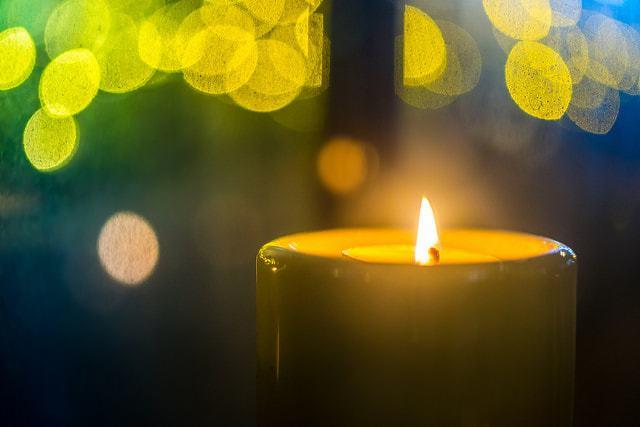
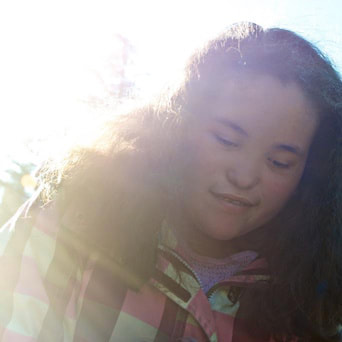
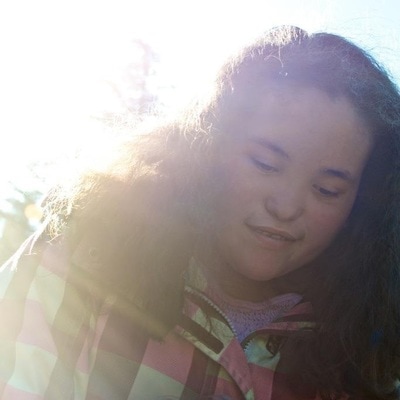
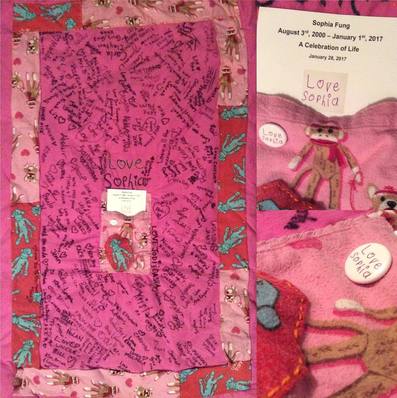
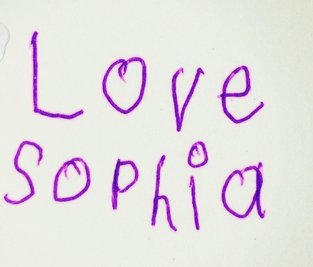

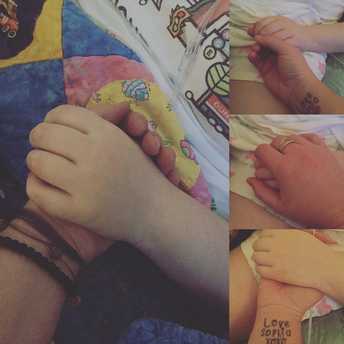
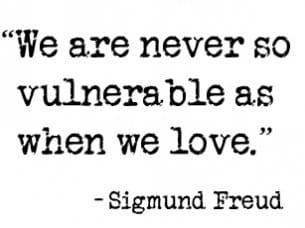
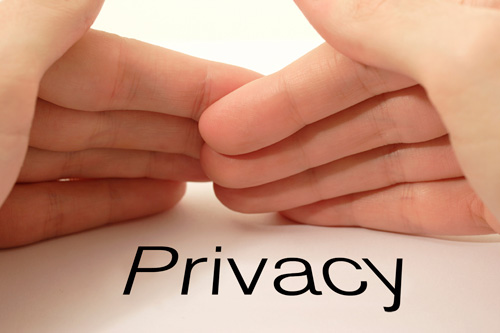
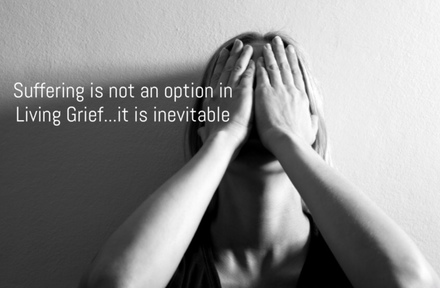

 RSS Feed
RSS Feed